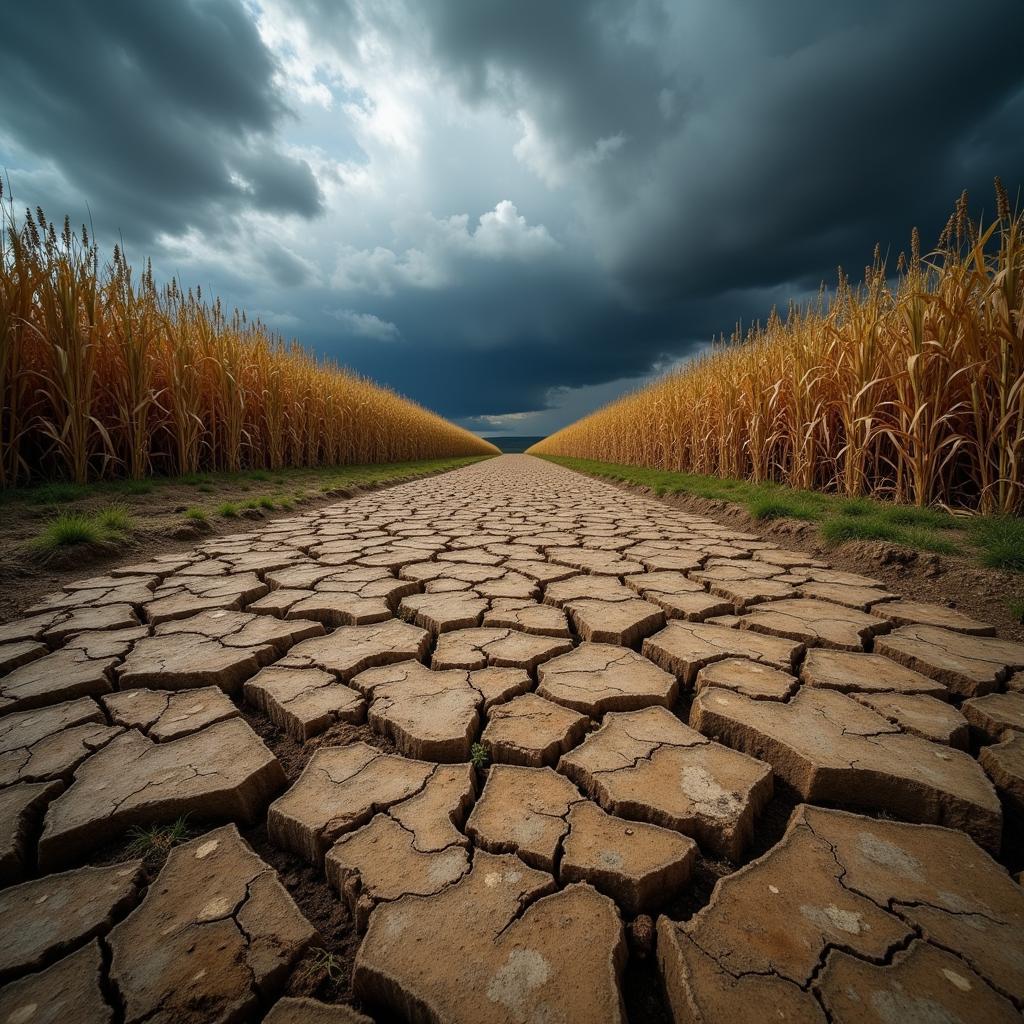Climate change impacts on agriculture has become an increasingly common topic in IELTS Writing Task 2, appearing in approximately 15% of recent examination papers. Based on analysis of past papers and current global trends, this theme is likely to remain highly relevant for future tests. Let’s examine one frequently tested question and explore sample responses across different band scores.
The effects of climate change on agriculture represent a critical global challenge that IELTS candidates should be prepared to discuss comprehensively.

Question Analysis
Some people believe that climate change will seriously affect global food production in the future. To what extent do you agree or disagree with this statement? Give reasons for your answer and include relevant examples from your knowledge or experience.
This question requires candidates to:
- Express their position on climate change’s impact on food production
- Support their argument with logical reasoning
- Provide specific examples
- Maintain a clear and coherent structure
Band 8.5 Sample Essay
Climate change undoubtedly poses a severe threat to global food production systems, and I strongly agree that its impacts will significantly affect agricultural output worldwide. This essay will examine the major ways in which climate change disrupts farming and food security.
Firstly, how climate change impacts global food supply chains is evident through increasingly unpredictable weather patterns. Rising temperatures and irregular rainfall have already begun disrupting traditional growing seasons, forcing farmers to adapt their cultivation methods or risk crop failure. For instance, rice farmers in Southeast Asia have reported significant yield reductions due to extended dry seasons and increasingly intense monsoons.
Secondly, extreme weather events linked to climate change pose immediate threats to agricultural productivity. Floods, droughts, and hurricanes can devastate entire harvests in minutes, leading to food shortages and economic hardship for farming communities. The 2019-2020 Australian bushfires, for example, destroyed millions of hectares of farmland, demonstrating the catastrophic potential of climate-related disasters.
Furthermore, The effects of deforestation on global warming create a devastating cycle that exacerbates agricultural challenges. Rising sea levels caused by melting polar ice caps will likely contaminate coastal farmland with saltwater, rendering it unsuitable for cultivation. Studies predict that by 2050, significant portions of fertile coastal regions in countries like Bangladesh and Vietnam may become unproductive.
In conclusion, the evidence overwhelmingly suggests that climate change will have profound negative implications for global food production. Unless immediate action is taken to address this crisis, the world faces serious challenges in feeding its growing population.
Band 6.5 Sample Essay
I agree that climate change will affect food production in the future. There are several reasons why this will happen.
The first reason is that the weather is changing. When it gets too hot or too cold, plants cannot grow properly. Farmers in many countries are having problems because they don’t know when to plant their crops. Sometimes it rains too much, and sometimes there isn’t enough rain.
Another problem is natural disasters. Floods and droughts are happening more often because of climate change. These disasters can destroy farms and kill animals. For example, in my country, many farmers lost their crops last year because of flooding.
Also, some places will become too hot for farming. Scientists say that some areas will be too dry to grow food. This means people will have to find new places to farm or different ways to grow food. Many poor farmers cannot afford to move or change their farming methods.
In conclusion, I think climate change is a big problem for farming. Governments need to help farmers deal with these changes. If they don’t, there might not be enough food for everyone in the future.
Key Vocabulary
- Agricultural productivity (n.) /ˌæɡrɪˈkʌltʃərəl prəˌdʌktɪvəti/ – the efficiency of agricultural production
- Cultivation (n.) /ˌkʌltɪˈveɪʃən/ – the process of growing crops
- Devastating (adj.) /ˈdevəsteɪtɪŋ/ – highly destructive or damaging
- Exacerbate (v.) /ɪɡˈzæsərbeɪt/ – to make worse
- Food security (n.) /fuːd sɪˈkjʊərəti/ – the state of having reliable access to sufficient food
- Implications (n.) /ˌɪmplɪˈkeɪʃənz/ – the concluding effects of something
- Unpredictable (adj.) /ˌʌnprɪˈdɪktəbəl/ – not able to be foreseen or known beforehand
Practice Suggestions
Consider practicing with these related topics:
- The role of technology in addressing agricultural challenges
- Government policies to support farmers affected by climate change
- The impact of changing weather patterns on rural communities
Share your practice essays in the comments section for feedback and discussion with other learners.